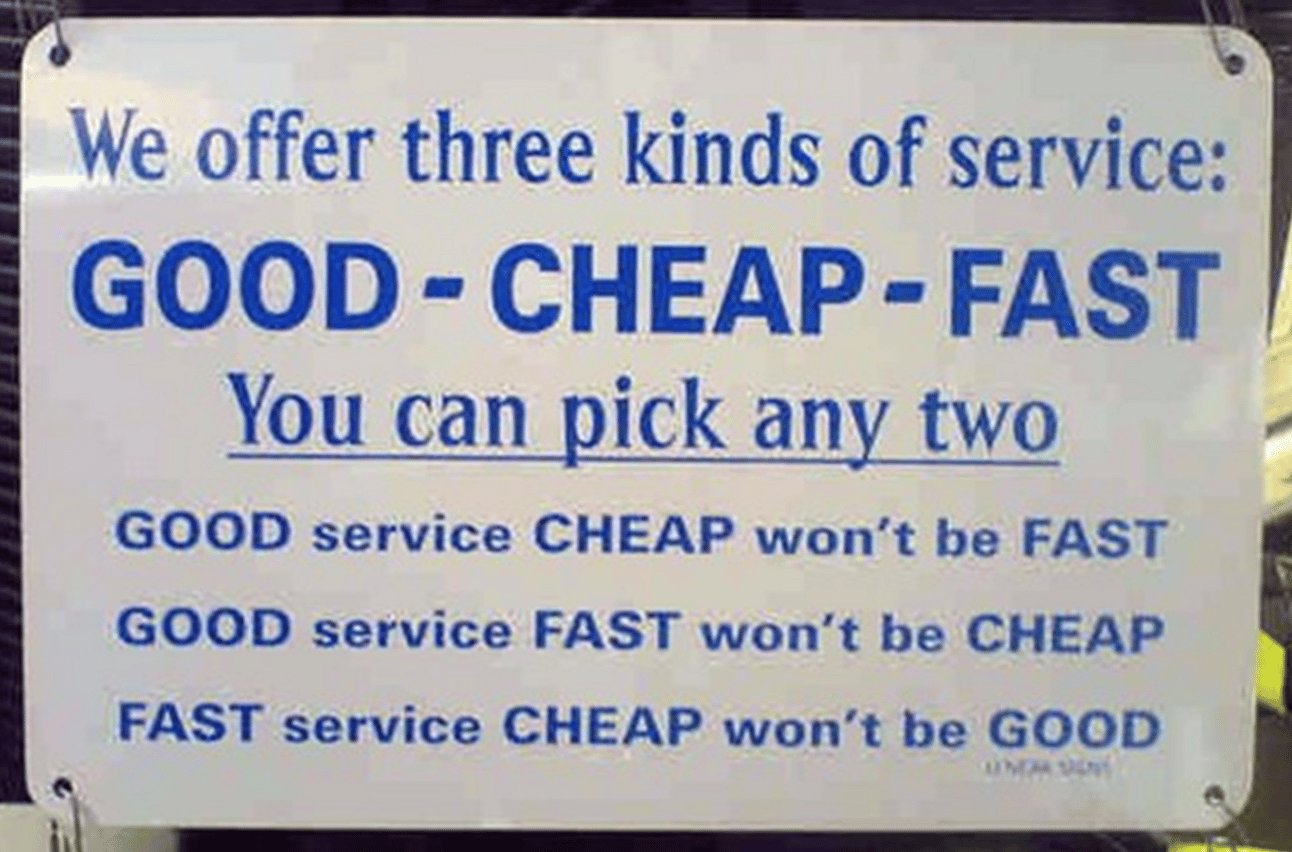
This Photo by Unknown Author is licensed under CC BY-SA-NC
I, like all of you, face a lot of problems in an average day. In one of my presentations on problem solving I classified problems into three types:
Complaining, where you don’t really want an answer.
Completely defined problems, where there is a single right answer.
Incompletely defined problems, where you need to figure something out.
One of my points by having categories is to highlight how we can get into trouble when we misunderstand which type of problem we are facing. When a friend is venting about something, they may get frustrated if we start giving them suggestions to improve the situation.
In my consulting work I generally assume all problems are incompletely defined. That makes my first job understanding the meta-problem before I get to work on solving the stated problem (or a variant of it). My approach frequently meets my client’s needs. Unfortunately, just like misinterpreting venting as an invitation to help solve a problem, sometimes my clients just want me to treat their problem as completely-defined. Depending on the people and situation, this can go fine, or somewhat less well. After a recent time when it went poorly, I have been evaluating how I should modify my approach in the future.
When to Avoid the Meta-Problem
There are many times when formally considering the meta-problem is simply not worth the effort. If I had never come up with this idea to explicitly evaluate which problem to solve, we would be stuck with treating problem solving as a “soft” skill based on experience and intuition. When I am deciding what to make for dinner, I usually take some kind of poll of the family and match that up to what I am willing to make. I use heuristics all the time like “I have a long list of things I could do, but I will just start with the fastest ones so I can make my list shorter quickly.”
Another time it might not be fruitful to solve the meta-problem is when it’s not your role to do so. Have you ever asked someone to buy you something, and they got you something else because it was cheaper / better in their opinion? I have partially covered this idea already in the past when I was talking about valid substitutes for your grocery order. https://typethreeerror.beehiiv.com/p/trade-offs In that post I described how complex it might be to identify a valid substitute. In principle if you know what the other person’s priorities are, they should be happy with your swap. But if you don’t know, it is usually hard to guess.
Even if it is your role to solve the meta-problem, there are often limitations to that freedom. If someone asks you to solve the dinner problem, you should not switch to solving the breakfast problem. Not least of which because then no one will solve the dinner problem. This notion of scope is perhaps what I find most challenging in my work. If no one else is solving an important problem, it would be highly valuable to make progress on it. But it can be hard in an organization larger than a single person to figure out if it really is not being covered.
Reading the Situation
I opened this post by commenting that I generally assume all problems are incompletely defined. The more classic way to say this is “your requirements are wrong.”
Sometimes though, the person you’re working with really does know enough to give you the right requirements. You learn things as you go, so there always needs to be the ability to update requirements based on new information. But where I have gotten into trouble in the past with my approach is when there are individuals at the client who could do this work, they just hired me to do it instead.
I started doing some fixed bid work a couple years ago as one approach to help me stay on track. Specifically, I am willing to do “assessment and design” as a fixed bid because in those cases I am selling a process, not an implementation. Sticking to the right scope ensures that specific scope gets the right focus. But also, depending on the situation, my clients often do not mind scope creep as much if they are not paying extra for it. That gives me the flexibility to investigate related interesting topics based on my judgement, as long as I will still meet the official scope too.
I also have the analogy in my head that solving a problem with unneeded constraints is like writing a haiku. Sure, you can write a poem without following a certain structure, but it allows me to use my creativity to do my best with the framework I’m given. This analogy works well for me when the constraints have to do with the tools or methods I am able to use, but not at all when I think my stakeholder would change the requirement if only they had the knowledge I do.
Conclusions
I came up with the phrase “meta-problem” less than 4 months ago and wrote up a draft theory paper to go with it a month after that. Since then, I have used my methodology a few times on problems that felt important enough. I was a bit surprised to discover that I really did notice entirely new and interesting elements of the problem just by writing the situation out formally.
But the biggest benefit for me personally has really been understanding when I was intuitively balancing trade-offs. I was used to using my understanding of priorities to guess which two of “fast, cheap, or good” were most important. It’s better to ask for input and educate people about the options along the way.

